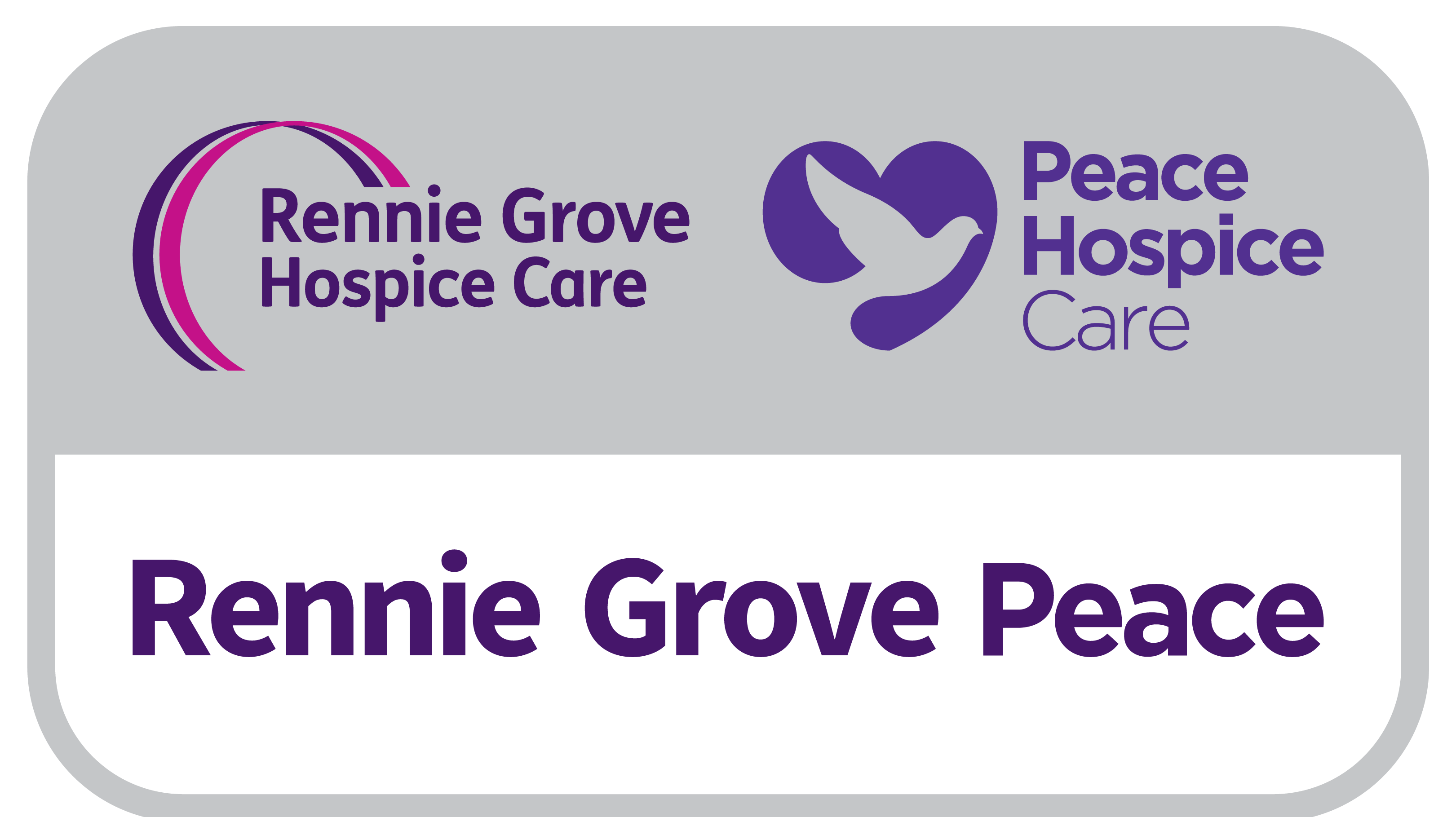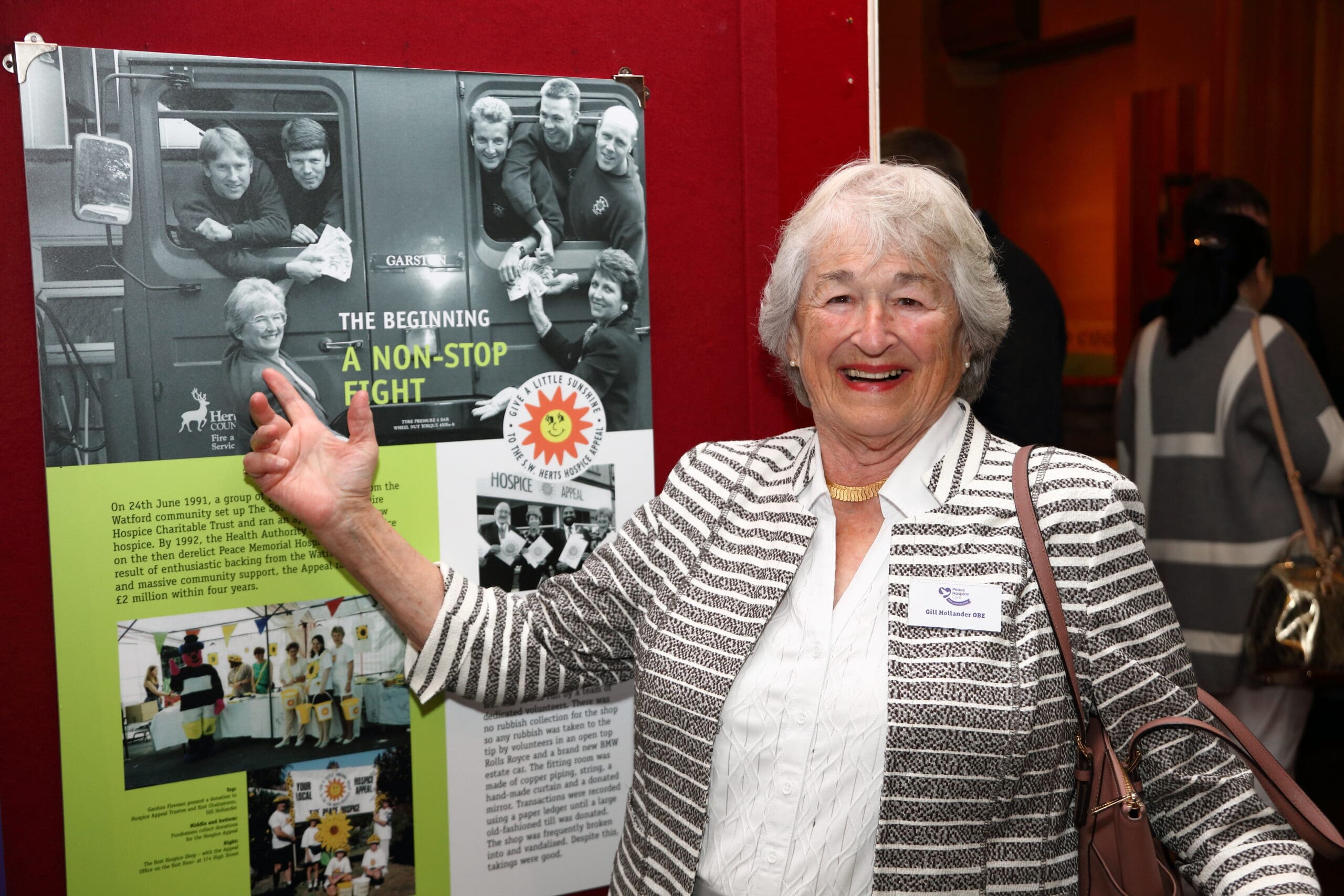Gill Hollander was a devoted and dedicated charity worker whose loyalty and support helped found Peace Hospice Care. Gill helped steer the Peace Hospice through its first crucial years when the appeal began in 1991 and served as chairman until 1996. Her services to the community in Hertfordshire were recognised by the award of an OBE in the 1999 New Year’s Honours List.
In 1989, there was a groundswell of opinion in favour of establishing a local hospice, and Gill quickly became involved. The first priority was finding a suitable building. The Peace Hospital had closed in 1985, leaving the site empty with some buildings demolished and the main building rapidly becoming derelict. It was a sorry sight, with the windows boarded up and squatters breaking in. However the health authority initially refused to make it available as a hospice, despite local opinion regarding it as the obvious site.
A Peace Hospice appeal was established in 1991, with Gill as the first chair. She quickly assembled a team of experts to assist her, including doctors Robin Gain and Patrick Russell, solicitor Paul Nicholas, accountant Nigel Munday and Mike Jackson, then leader of Watford Council. Another key appointment was Helen Ellis, who became the appeal’s first CEO and their only paid employee. Gill and Helen were to prove a dynamic and persuasive partnership who worked long hours to get the appeal off the ground.
A small shop at 174 High Street became the appeal’s headquarters, with Gill operating out of a pokey office on the first floor. The initial target was to raise £2 million, but the appeal soon reached £4 million. The Watford Observer was a staunch supporter of the appeal, and during the 1990s it regularly published photographs of Gill and Helen receiving cheques from all manner of local groups who had organised fundraising coffee mornings, concerts, dinners and jumble sales.
Gill regarded her greatest strength as knowing the right people and having the persuasive skills to get them to help. She also claimed to have “market-trader genes – we didn’t spend anything we didn’t have to spend”. Gill recognised the importance of volunteers, who she regarded as “professionals working for nothing”. Many of the early volunteers were over-qualified, including an Admiral who worked as a maintenance man in the early years.
In November 1992, the health authority finally agreed to hand over the old hospital building to the Hospice appeal.
The hospice trustees felt it was important to have a tangible sign of progress, and in 1993 a daycare centre was established in temporary buildings in front of the hospital building. The facilities included a lounge, treatment and therapy rooms, an office and a small kitchen, and later there was even a garden. The centre was open initially for two days and later for three, and proved very popular with patients. Meanwhile, the ground floor of 174 High Street had become the appeal’s first charity shop. Gill persuaded various shops to donate furniture and display stands. She remembered fashioning a changing cubicle using some lengths of copper piping, a ball of string, a curtain and a mirror.
The next step was to transform the battered old hospital building into a hospice fit for the 21st century. Construction work began in 1995 to provide offices, ancillary rooms and a permanent daycare facility. During her time working on the Watford General Scanner appeal, Gill had come into contact with HRH Princess Michael of Kent. Using her famed powers of persuasion, she invited the Princess to become Patron of the hospice, and one of her first duties was to declare the new hospice building open in 1996.
Having achieved this landmark, Gill stood down as chair of the trustees, to be succeeded by Robin Gain. However, she continued to be closely involved with the hospice for the rest of her life.
Gill died on 25 November 2022 at the age of 88 following a short illness, at home with her family.

